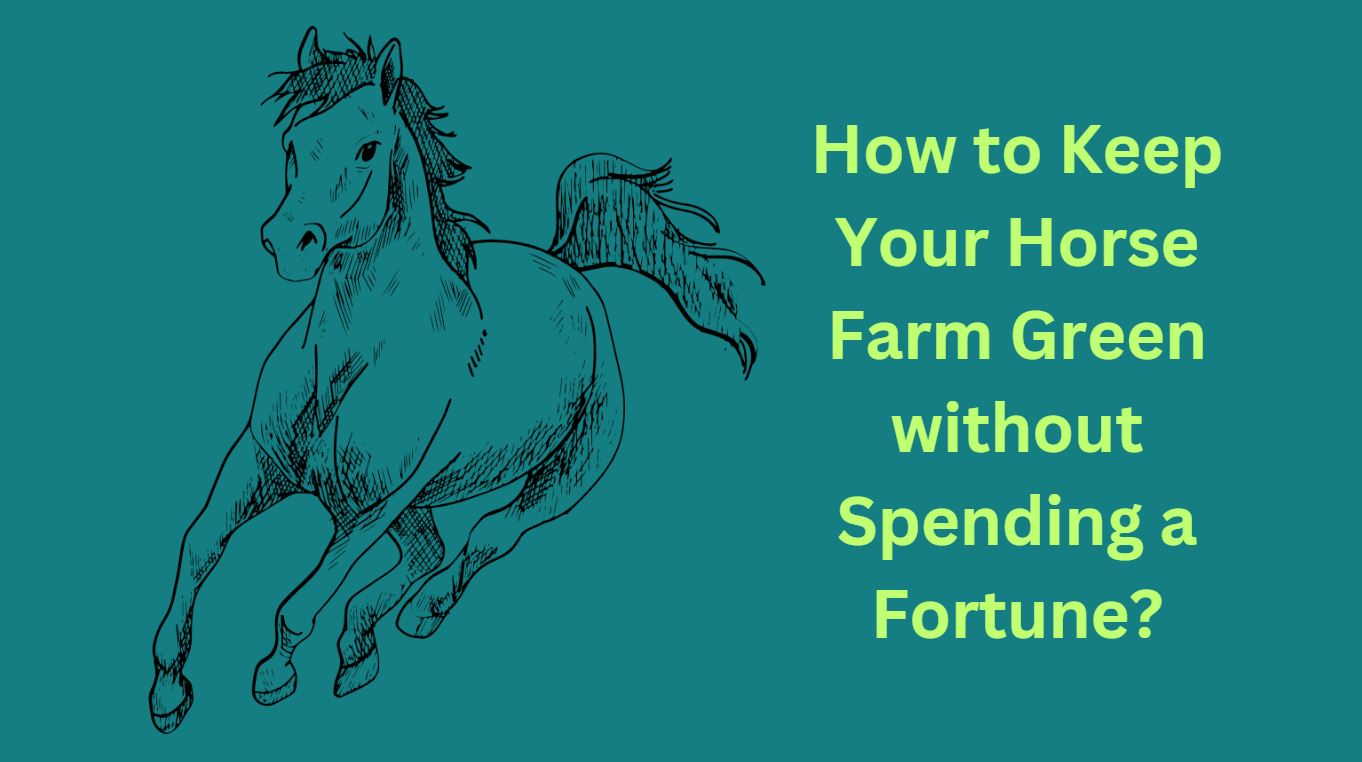How to Keep Your Horse Farm Green without Spending a Fortune?

Sometimes, picking smart alternatives and choosing sustainable solutions can cut down the carbon footprint of your farm considerably. Maintaining a horse farm is a lot of work. You know the amount of hard work that goes into keeping the magnificent beasts healthy and active. The racing thoroughbreds and dapper show horses do not make themselves. A lot of care, maintenance, and training go into each horse.
Amidst all the chaos, the pressure of daily errands and the emergency tasks on a farm, there comes a time when we have to worry about the environment as well. While living on a farm, close to these horses, we become a part of the environment. There is no way we can think about the well being of our four-legged friends without caring about the ecosystem. Implementation of green practices is becoming more and more necessary with each passing day.
Reduce the runoff
One of the primary things you need to do is reduce the water runoff as much as possible. The fertilizers, nutrients, and other organic matter wash out of the farm with rainwater into the nearby ponds, lakes, and streams. Improper irrigation systems, leaky hoses, and several other human-made sources increase the runoff.
You can reduce the runoff by investing in automatic waterers. Most high-end shelters and temporary travel shelters for racing horses we see on TVG (tvg[dot]com) use automatic waterers.
Invest in composting
Composting is an excellent way to use waste to create fuel. Composting is something most environmentalists recommend. It breaks down the organic matter using the microbes present in the waste inside a controlled environment. It results in high nutrient humus that is excellent natural manure. Composting also kills off most pathogens, parasite eggs and larva, flies and eliminates the odor problem on most farms. If you don’t have the infrastructure, you can outsource your manure.
Keep your pastures healthy
Always mow regularly or remove weeds manually every month. Pick up the manure in the paddocks and other grazing areas. Don’t like horse dung sit around in the heat. It attracts flies and other insects that can spread infections among other equines and even humans. You can always use the compost-created manure on your own field. It will not only cut the costs, but it will also allow your horses to feed on 100% natural and 100% organic grass.
Leave the native plants alone
Check the list of endemic plants in the area. Unless they are harmful to you and your animals, try to leave them alone. Plant native trees, herbs, and shrubs around your farm. They might not add to the pasture, but they will provide structural benefit during heavy rains and protect the paddock from erosion. During times of need, they can act as windbreaks, firewood, privacy buffers, and timber sources.
Learn natural pest control methods
Keeping animals attracts many pests. Their fodder, water, and shade will attract myriads of insects, rodents, and birds to the farm. They are not always harmful to you or the horses, but they can be annoying. Always repair leaks on faucets, prevent the collection of rainwater in abandoned vessels, invest in natural predator species, and move the leftover food into closed compost pits outside the property.
A few small steps can ensure a better future for you and your next generation. Keep your farm green and your future greener with these EPA-approved practices.
Discover more from Newskart
Subscribe to get the latest posts sent to your email.


Comments are closed.